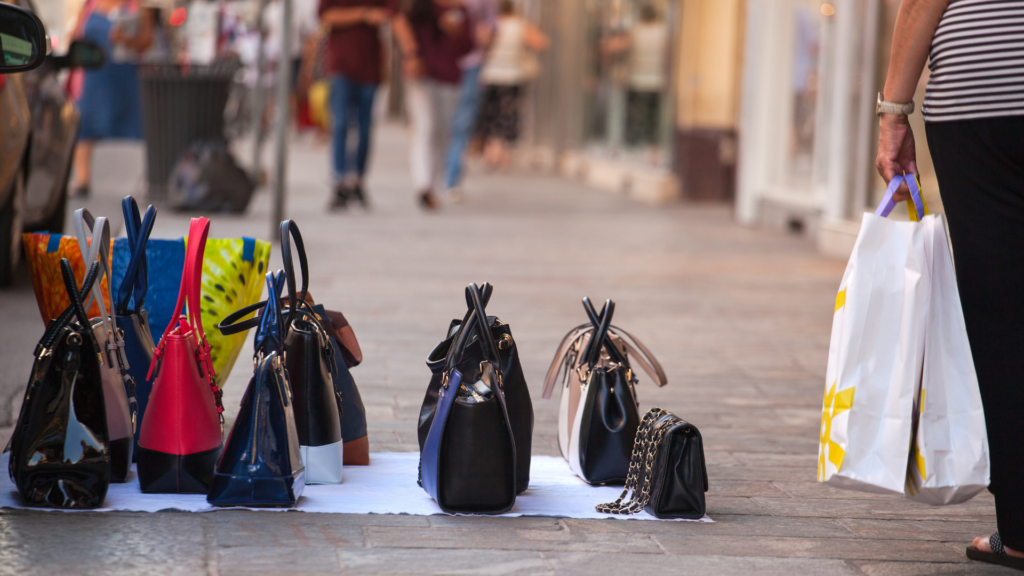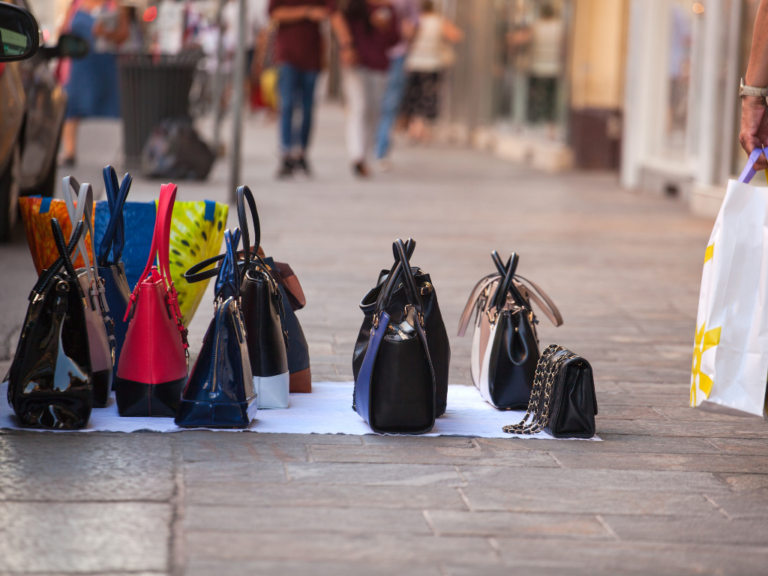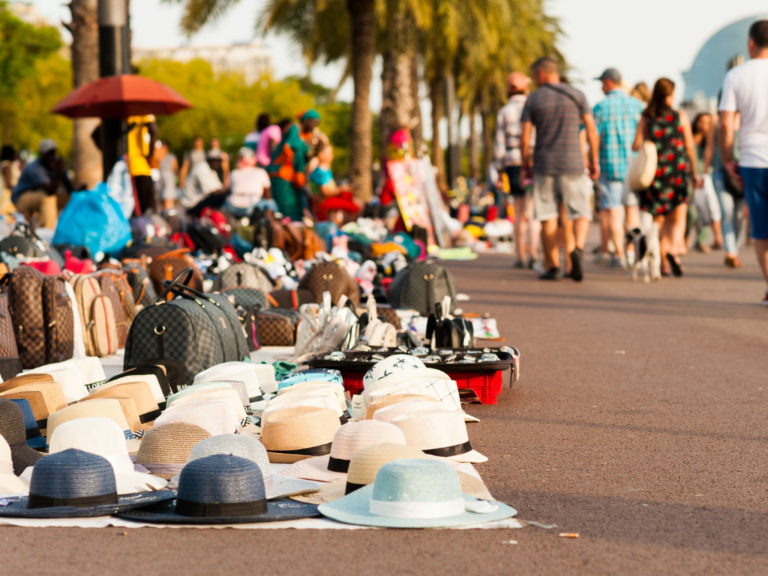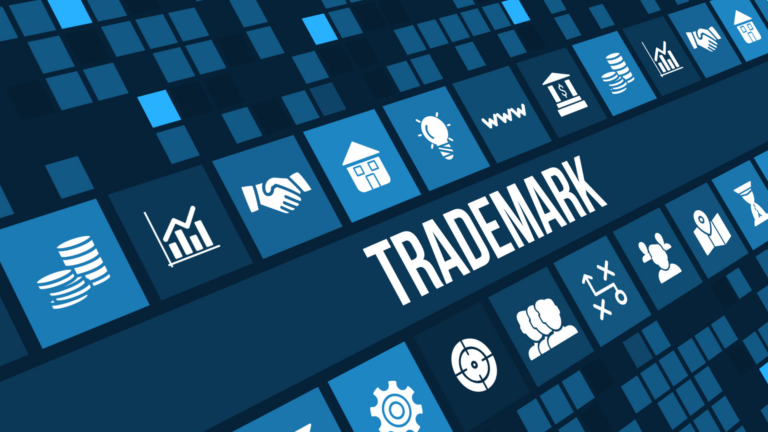Call us now:
What is counterfeit goods? How are counterfeit goods handled in Vietnam? Counterfeit goods pose significant challenges to both consumers and businesses, undermining the integrity of the marketplace. In Vietnam, the sale and distribution of counterfeit goods are met with strict legal measures, reflecting the government’s commitment to protecting intellectual property rights and ensuring consumer safety. This article explores how counterfeit goods are identified, controlled, and penalized under Vietnamese law, shedding light on the enforcement mechanisms and the penalties for those involved in such illicit activities.

What is counterfeit goods?
The concept of counterfeit goods is defined in Clause 7, Article 3 of Decree No. 98/2020/ND-CP, dated August 26, 2020, by the Government, which includes:
- Goods that do not have the correct usage value or function according to their natural origin, name, or goods that have no usage value, function, or have a value or function inconsistent with the publicly declared or registered value or function.
- Goods that have at least one of the following characteristics: quality indicators, basic technical specifications, or the main ingredients creating the value or function of the goods, which only reach 70% or less of the minimum level set by the technical standards or quality standards registered, published, or labeled on the goods’ packaging.
- Counterfeit drugs and fake medicinal materials as regulated by the 2016 Law on Drugs, specifically:
- Counterfeit drugs are those produced without the required active ingredients or with incorrect active ingredients or those containing the correct active ingredients but in incorrect concentrations, doses, or weights compared to what has been registered, or drugs presented or labeled to mislead consumers about their origin or manufacturer.
- Fake medicinal materials are those that are not the correct species, part, or origin as stated on the label or accompanying documentation, or those intentionally mixed or replaced with non-medicinal substances for profit.
- Veterinary medicines, pesticides that lack active ingredients or do not contain the full range of active ingredients registered, or have active ingredients different from what is indicated on the label, packaging, or where one or more of the active ingredients reach only 70% or less of the minimum level set by the technical standards or quality standards registered or published.
- Goods with counterfeit labels or packaging indicating false information about the name, address of the manufacturing, importing, or distributing organization or individual.
- Goods that counterfeit registration numbers, circulation numbers, barcodes, or packaging of another organization or individual; or falsify their origin, place of production, packaging, or assembly.
- Counterfeit tags, labels, and packaging of goods.
What is the sale of counterfeit goods?
The sale of counterfeit goods refers to the act of engaging in one or more activities, or all of the activities, that facilitate the circulation of counterfeit goods in the market. These activities include offering goods for sale, storing, displaying, preserving, wholesale distribution, retail sales, transportation, export, import, and other related actions. Essentially, it involves any step in the supply chain that contributes to the movement of counterfeit products from producers to consumers, whether within the country or across borders. This encompasses a wide range of illegal activities that aim to deceive consumers and businesses, damaging both market integrity and consumer trust.
How are counterfeit goods handled in Vietnam?
Selling counterfeit goods with incorrect usage value or function
According to Article 9 of Decree No. 98/2020/ND-CP issued by the Government, the act of selling counterfeit goods that do not have the correct usage value or function is subject to fines ranging from 1 million to 70 million VND, depending on the corresponding value of the genuine goods.
For the act of importing counterfeit goods, or counterfeit goods falling under the following categories, the violator may face fines ranging from 2 million to 140 million VND, depending on the corresponding value of the genuine goods:
- Food, food preservatives, food additives, food processing aids, medicines, raw materials for medicines.
- Animal feed, aquatic feed, livestock waste treatment products, aquatic farming environmental treatment products, fertilizers, pesticides, veterinary medicines, plant seeds, animal breeding stock.
- Cosmetics, detergents, medical equipment, chemicals, insecticides, antibacterial products in household and medical fields, cement, steel for construction, helmets.
Additionally, violators may face supplementary penalties such as the confiscation of goods, suspension of licenses or professional certificates for 6 to 12 months in case of repeated violations or recidivism.
Measures to remedy the consequences may include the forced destruction of counterfeit goods, forced removal from Vietnamese territory or re-export of counterfeit goods in the case of imported counterfeit products, or the obligation to return any illegal profits obtained.
Manufacturing counterfeit goods with incorrect usage value or function
According to Article 10 of Decree No. 98/2020/ND-CP, the act of manufacturing counterfeit goods with incorrect usage value or function may result in fines ranging from 5 million to 100 million VND, depending on the corresponding value of the genuine goods.
If the counterfeit goods fall under the following categories, the violator may face fines ranging from 10 million to 200 million VND, depending on the corresponding value of the genuine goods:
- Food, food preservatives, food additives, food processing aids, medicines, raw materials for medicines.
- Animal feed, aquatic feed, livestock waste treatment products, aquatic farming environmental treatment products, fertilizers, pesticides, veterinary medicines, plant seeds, animal breeding stock.
- Cosmetics, detergents, medical equipment, chemicals, insecticides, antibacterial products in household and medical fields, cement, steel for construction, helmets.
Additionally, violators may face supplementary penalties such as the confiscation of goods, confiscation of tools or machinery used to produce counterfeit goods, suspension of licenses or professional certificates, or a ban on production activities for 12 to 24 months.
Measures to remedy the consequences may include the forced destruction of counterfeit goods and the obligation to return any illegal profits obtained.
Selling counterfeit goods with fake labels or packaging
According to Article 11 of Decree No. 98/2020/ND-CP issued by the Government, the act of selling counterfeit goods with fake labels or packaging may result in fines ranging from 1 million to 50 million VND, depending on the corresponding value of the genuine goods.
For the act of importing counterfeit goods or counterfeit goods falling under the following categories, the violator may face fines ranging from 2 million to 100 million VND, depending on the corresponding value of the genuine goods:
- Food, food preservatives, food additives, food processing aids, medicines, raw materials for medicines.
- Animal feed, aquatic feed, livestock waste treatment products, environmental treatment products for aquatic farming, fertilizers, pesticides, veterinary medicines, plant seeds, animal breeding stock.
- Cosmetics, detergents, medical equipment, chemicals, insecticides, antibacterial products for household and medical use, cement, steel for construction, helmets.
Additionally, the violator may face supplementary penalties such as confiscation of the goods, suspension of licenses or professional certificates for 1 to 3 months.
Measures to remedy the consequences may include: the obligation to remove the violation from the counterfeit labels or packaging, forced destruction of counterfeit goods, forced removal of counterfeit goods from Vietnam or re-export in the case of imported counterfeit goods, or the obligation to return any illegal profits obtained.
Manufacturing counterfeit goods with fake labels or packaging
According to Article 12 of Decree No. 98/2020/ND-CP, the act of manufacturing counterfeit goods with fake labels or packaging may result in fines ranging from 2 million to 50 million VND, depending on the corresponding value of the genuine goods.
If the counterfeit goods fall under the following categories, the violator may face fines ranging from 4 million to 100 million VND, depending on the corresponding value of the genuine goods:
- Food, food preservatives, food additives, food processing aids, medicines, raw materials for medicines.
- Animal feed, aquatic feed, livestock waste treatment products, environmental treatment products for aquatic farming, fertilizers, pesticides, veterinary medicines, plant seeds, animal breeding stock.
- Cosmetics, detergents, medical equipment, chemicals, insecticides, antibacterial products for household and medical use, cement, steel for construction, helmets.
Additionally, the violator may face supplementary penalties such as confiscation of goods, confiscation of tools or machinery used to produce counterfeit goods, suspension of licenses or professional certificates, or a ban on production activities for 3 to 6 months.
Measures to remedy the consequences may include: the obligation to remove the violation from the counterfeit labels or packaging, forced destruction of counterfeit goods, and the obligation to return any illegal profits obtained.
How many years of imprisonment are imposed for selling counterfeit goods in Vietnam?
Manufacturing and selling counterfeit food, food additives, and food ingredients
According to Article 193 of the Penal Code, individuals involved in the production or sale of counterfeit food, food ingredients, or food additives may face imprisonment ranging from 2 to 20 years, or life imprisonment, depending on the severity of the crime. In addition, the offender may also be fined between 20 million and 100 million VND, banned from holding certain positions, prohibited from practicing specific professions, or barred from certain activities for 1 to 5 years. They may also face confiscation of part or all of their assets.
Legal entities involved in the production or sale of counterfeit food, food additives, or food ingredients may face fines ranging from 1 billion to 18 billion VND, suspension of operations for 6 months to 3 years, or permanent suspension of activities. Additionally, the legal entity may be banned from conducting business, prohibited from operating in certain sectors, or prohibited from raising capital for 1 to 3 years.
Manufacturing and selling counterfeit medicines
Under Article 194 of the Penal Code, individuals involved in the production or sale of counterfeit medicines or medicines for disease prevention may face imprisonment ranging from 2 to 20 years, life imprisonment, or even the death penalty, depending on the severity of the crime. Offenders may also be fined between 20 million and 100 million VND, prohibited from holding certain positions, prohibited from practicing specific professions, or prohibited from engaging in certain activities for 1 to 5 years, and their assets may be partially or entirely confiscated.
Legal entities involved in the production or sale of counterfeit medicines may face fines ranging from 1 billion to 20 billion VND, suspension of operations for 6 months to 3 years, or permanent suspension of activities. Additionally, the legal entity may be banned from conducting business, prohibited from operating in specific fields, or prohibited from raising capital for 1 to 3 years.
Manufacturing and selling counterfeit animal feed, fertilizers, veterinary medicines, plant protection products, and agricultural seeds
According to Article 195 of the Penal Code, individuals involved in the production or sale of counterfeit animal feed, fertilizers, veterinary medicines, plant protection products, agricultural seeds, or livestock may face fines of up to 1 billion VND or imprisonment ranging from 1 to 20 years, depending on the nature and severity of the offense. The offender may also be prohibited from holding certain positions, banned from practicing specific professions, or prohibited from certain activities for 1 to 5 years. Additionally, part or all of their assets may be confiscated.
Legal entities involved in the production or sale of counterfeit animal feed, fertilizers, veterinary medicines, plant protection products, agricultural seeds, or livestock may face fines ranging from 1 billion to 15 billion VND, suspension of operations for 6 months to 3 years, or permanent suspension of activities. Additionally, the legal entity may be prohibited from conducting business, banned from operating in specific sectors, or prohibited from raising capital for 1 to 3 years.
Manufacturing and selling counterfeit goods not covered by the above cases
Under Article 192 of the Penal Code, individuals involved in the production or sale of counterfeit goods not covered by the above cases may face fines of up to 1 billion VND or imprisonment ranging from 1 to 15 years, depending on the nature and severity of the offense. The offender may also be prohibited from holding certain positions, banned from practicing specific professions, or prohibited from certain activities for 1 to 5 years. Additionally, part or all of their assets may be confiscated.
Legal entities involved in the production or sale of counterfeit goods not covered by the above cases may face fines ranging from 1 billion to 9 billion VND, suspension of operations for 6 months to 3 years, or permanent suspension of activities. Additionally, the legal entity may be prohibited from conducting business, banned from operating in certain sectors, or prohibited from raising capital for 1 to 3 years.
Contact Us Now:
DCNH LAW
Address: 38B Tran Nhat Duat, Phuoc Hoa ward, Nha Trang city, Khanh Hoa province, Vietnam.
Phone: (+84) 343320223 – 974278893
Email: dcnh.law@gmail.com



